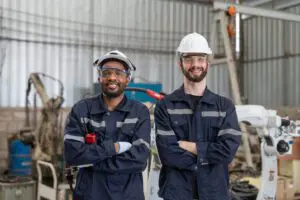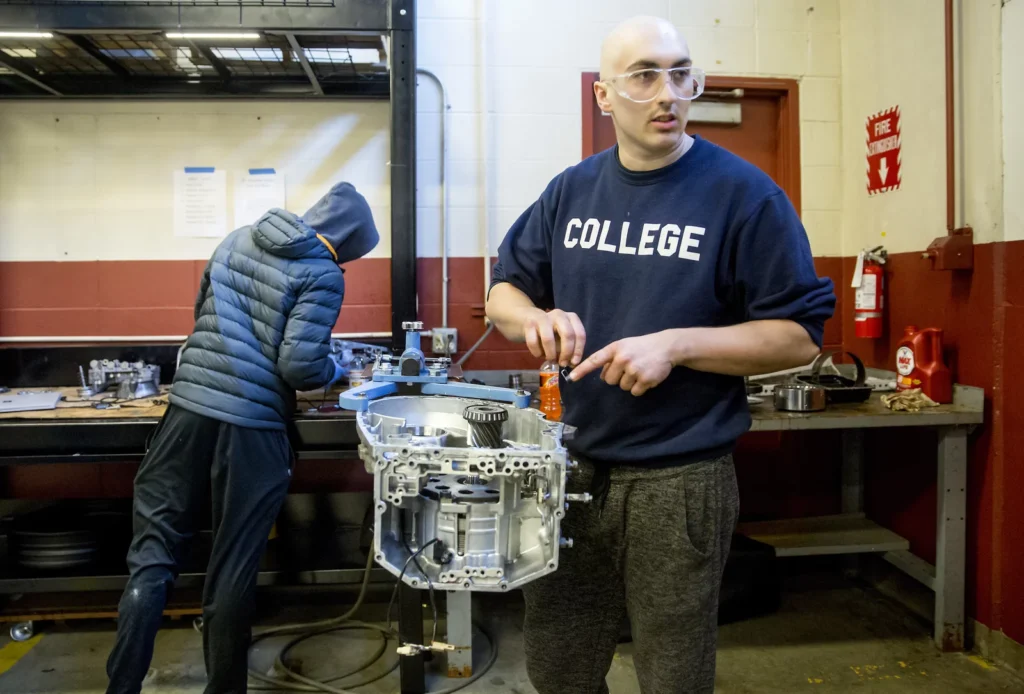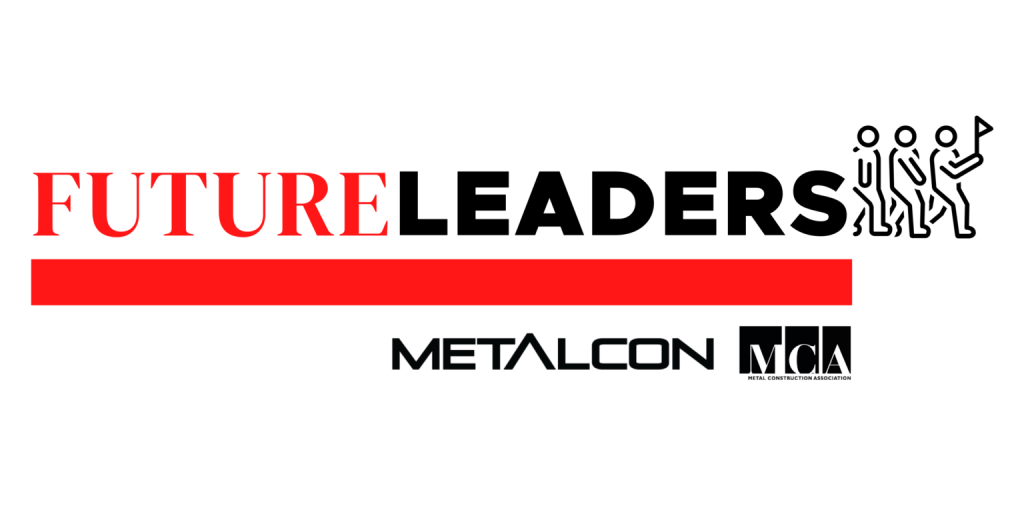Choosing a career path is one of the most significant decisions a high school student can make. While the metal construction industry has always offered rewarding careers, the advancements and improvements over the past two decades have made it an even more attractive field today. With technological innovations, sustainable practices, and enhanced safety measures, there has never been a better time to pursue a career in metal construction. A career path in metal construction not only promises stability, but also offers opportunities for growth and fulfillment.

Unlike many careers that require years of college education, metal construction offers pathways to start working and earning right after high school through apprenticeships and vocational training. For students who prefer practical, hands-on work over traditional academic routes, metal construction provides immediate opportunities to engage in meaningful, tangible projects.
Today we explore the various facets of metal construction and the benefits it offers, making it a compelling choice for young individuals.
Understanding Metal Construction
Metal construction encompasses a wide range of activities, including the design, fabrication, and erection of structures made from steel and other metals. Many of the entry-level positions are attractive to high school graduates because they require a high school diploma, to be the age of 18, have a driver’s license and have reliable transportation.
It involves several key areas:
- Structural Steel Fabrication: Creating the skeletons of buildings, bridges, and other structures.
- Sheet Metal Work: Crafting metal parts for buildings, HVAC systems, and more.
- Welding and Joining: Combining metal parts through welding, bolting, and riveting.
- Metal Roofing and Cladding: Installing metal roofs and exterior walls.
- Custom Metalwork: Designing and creating unique metal components for various applications.
Other areas include engineering, estimating, and general laborers. Given the competitive advantages of metal construction and the current level of demand, there is plenty of opportunities for new laborers to enter this field.
For an in-depth look at the current employment climate in the metal construction industry, tune into the webinar “Employment in the Metal Industries: Maximizing Your Experience,” presented by Samuel Gray, Vice President of Metallic Products. Hosted by the Future Leaders Program, Sam offers valuable insights from both the employer and employee perspectives, highlighting key opportunities and strategies for success in metal construction.

Benefits of a Career in Metal Construction
As the construction industry evolves, the demand for skilled professionals in metal construction continues to rise. Exploring a career in this dynamic field offers numerous benefits, from job stability and competitive wages to opportunities for technological innovation and sustainable practices.
High Demand and Job Security
A 2023 report by the Associated General Contractors of America (AGC) indicated that 80% of construction firms are struggling to fill craft worker positions, including those in metal construction. This shortage is due to a combination of factors, including an aging workforce and fewer young people entering the trades. Skilled metal workers are in high demand, ensuring job security and numerous employment opportunities. Additionally, with the $1.2 trillion federal infrastructure plan passed by Congress in 2021, 1.5 million construction jobs per year are on track to be created for the next 10 years, boosting the share of all jobs that are connected with rebuilding the nation’s infrastructure from 11% to 14%, according to the Georgetown University Center on Education and the Workforce.
Good Earning Potential
According to NPR, “the Bureau of Labor Statistics reports median wages for construction jobs are higher than the median pay for all jobs.” Entry-level positions in metal construction often offer competitive wages, and there is significant earning potential as skills and experience grow. Many employers in the industry also provide comprehensive benefits, including health insurance, retirement plans, and paid time off.
Diverse Career Opportunities
Metal construction offers a range of career paths. Whether you’re interested in hands-on work like welding or prefer design and engineering, there’s a place for you in the industry. According to MetalTech, ” A job at a metal fabrication shop is more than a paycheck. People who work in metal fabrication help make life happen. You can go home each night knowing you’ve helped produce parts that the world depends on to keep running.” Working in metal construction allows individuals to see the tangible results of their labor, such as buildings, bridges, and infrastructure that stand the test of time and positively impact communities and cities.
Professional Development and Training
Apprenticeships, certifications, and on-the-job training programs are widely available to help high school graduates learn the industry and stay current with the latest technologies and techniques. Programs are offered on a regular basis either in-house by companies or by the various industry organizations. There are extensive training programs, certifications, and trade schools dedicated to metal construction.
Innovation and Technology
The metal construction industry is at the forefront of technological innovation. Advancements in materials, techniques, and tools mean that workers are always learning and applying new methods, keeping the work interesting and dynamic. The use of advanced technologies such as automation, robotics, and computer-aided design (CAD) makes the field exciting for tech-savvy graduates.
Environmentally Friendly Practices
Increasingly, metal construction incorporates sustainable practices and green building standards, appealing to environmentally conscious young people. As sustainability becomes a priority, careers in metal construction align with global trends toward environmental responsibility. Recycled materials, energy-efficient designs, and green building standards make this a forward-thinking industry for those interested in environmental stewardship.
How to Get Started

High school students can start by taking relevant courses in mathematics (algebra and geometry are a plus), science, technical education, and any mechanical-focused hands-on classwork. Tech-savvy students interested with coding, computer science or engineering and drafting classes (CAD) may apply these skills and programs in the trade. Participating in vocational training programs or dual-enrollment courses can provide a head start.
While in high school or upon graduation, look to gain practical experience through an apprenticeship or internship. Hands-on training and a chance to learn from experienced professionals is invaluable. Following high school, another option is to enroll in a trade school and obtain certifications in areas like welding, metal fabrication, and construction technology. Certifications will greatly enhance employability and open up advanced career opportunities.
Connecting with industry professionals and seeking mentorship can provide guidance and insight into career development. Industry associations and trade organizations often offer resources and networking opportunities.
Future Leaders of METALCON

The Future Leaders Program is an initiative by the Metal Construction Association (MCA) and METALCON aimed at nurturing the next generation of professionals in the metal construction industry. This program is designed to provide young professionals with the skills, knowledge, and network they need to succeed and lead in the industry. Industry education, networking, and professional development are the key focus areas of the program.
The objectives of this program include skill development, leadership training, networking opportunities, and industry insight. It consists of workshops and seminars, mentorships, hands-on training, networking events, and certifications. Many of these certification trainings, credit-earning education and networking opportunities take place in person at METALCON, or through its library of online webinars.

